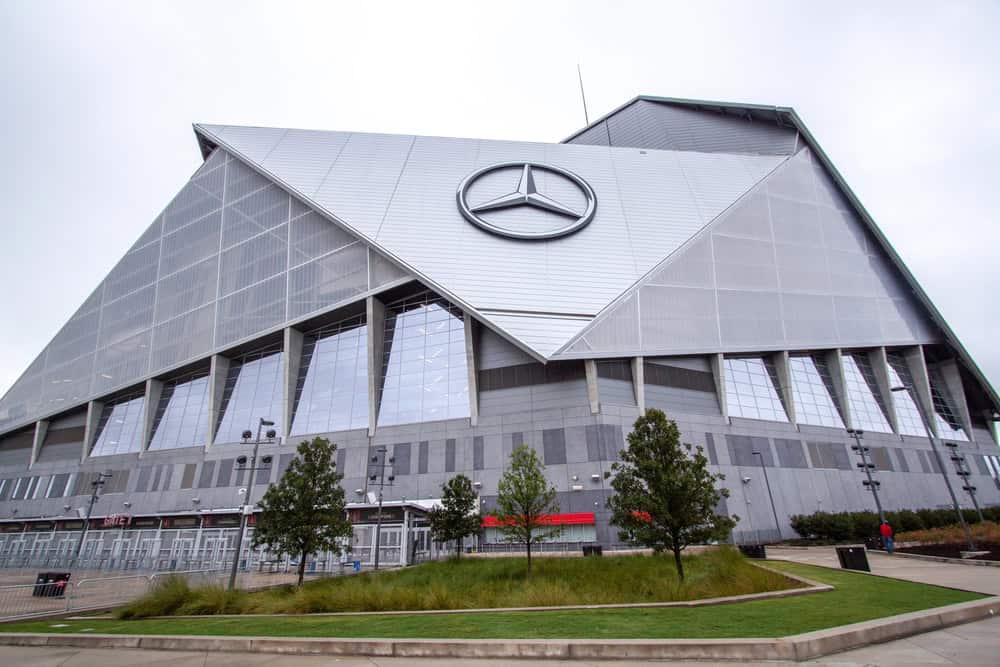
Deposit Photos
Soccer has become quite popular in Atlanta. The game has come a long way from when it was the butt of sports jokes in the 1980s and early 1990s. For many years, the majority of attention here was on pro and college football, basketball, and baseball. Soccer was seen by many as a European sport and was largely ignored in Atlanta and most of the U.S.
Things began to change in the mid-1990s. The U.S. staging of the 1994 FIFA World Cup definitely made an impression, as well as the launching of Major League Soccer just a few years later. It has taken a while, but soccer is now present at the top table of U.S. sports and not ignored, as it once was. But, perhaps more importantly, Atlanta’s soccer culture is also growing exponentially.
These days, fans are routinely able to read soccer match reports in national and news outlets and place bets on games at the best online sports betting sites. Soccer has become part of the mainstream and soccer culture is now at a stage where it can almost rival football and basketball – especially in places where national teams are present, like Atlanta.
Historical barriers
Whereas soccer is regarded as the world’s game, for a long time that world did not include Atlanta or the U.S. There are a number of reasons why this was the case. With so many Major League sports available to Atlanta fans, there was a feeling that there wasn’t room for any more. After all, baseball is America’s pastime and football is the number one sport in Atlanta. Soccer was just not seen as an “American” game.
Many people enter into sports fandom by playing the game themselves. Soccer was commonly run on a pay-to-play system and the simplicity and universal access enjoyed by the rest of the world was not the case in the US. Some of those ways of thinking and doing things are now changing.
The Beckham/Messi effect
Major sports stars will always attract more fans and there have been two very important athletes who have helped soccer to become more popular in America. David Beckham was thought by many to be one of the best players in the world and brought global attention to Major League Soccer (MLS) when he joined the Los Angeles Galaxy in 2007.
Beckham’s arrival brought many new fans to the sport and the league. Part of his original deal was ownership rights and now he has been involved in the latest example of growth in soccer interest in the America by bringing Lionel Messi to the MLS. As a result, a league that has often been regarded as weaker in world standards is now gaining more attention because of Messi’s presence.
Soccer’s recent growth in Atlanta
Soccer has been a Major League sport in America for less than 30 years. There were minor and amateur leagues before then, of course, and they produced earlier generations of soccer fans in Atlanta. But soccer being a part of the mainstream is more of a recent occurrence. As more money has been invested in pro teams, the sport has recruited better players, inspiring younger generations to play and watch soccer in greater numbers.
It also helps that Atlanta is a multi-cultural city. People born outside of the U.S. have brought the soccer tradition with them as they’ve settled here. And in 2026, Atlanta’s own Mercedes-Benz Stadium will serve as one of the sites across North America for the 2026 FIFA World Cup.

Mercedes Benz Stadium, home of Atlanta United soccer team. Image: Deposit Photos
Adoption of world cultures
The rise of American soccer in general has played an important part in the surging popularity of the sport in Atlanta. But the movement off of the field has also been crucial. Soccer fans have looked abroad for cues about soccer culture and repackaged it for Atlanta fans.
Soccer fans in other countries have long and traditional ties to cities and towns through the clubs, and Atlanta fans have been keen to adopt many of the practices. The atmosphere and fan involvement at a soccer game is usually much different from what you’ll see at pro football or baseball games in Atlanta.
Community soccer clubs
Those with ties to their local soccer club have also developed a bond between fans and their communities. Although this is present at MLS clubs, it is perhaps even more apparent in the lower leagues. Many smaller cities in the Southeast have their own soccer clubs, with fans who see them as an important part of community development.
The idea of franchise sports does not exist as much in soccer as with the more traditional big four. So, even the smallest of teams can produce a thriving soccer community that is an indelible part of the local environment. In this way, soccer culture has spread far beyond Major League Soccer.
Younger fans
Although soccer has become more popular across the board in Atlanta over the last 20 years, it is more noticeable with younger generations. Younger fans are looking at the excitement and culture of the game across the world and translating that to their own experience in Atlanta.
These fans are also some of the first to have always had a stable, professional major league as part of their lives. Knowing no different, and having more access to soccer from around the world than ever before, growing and developing their own brand of soccer culture has seemed only natural.
Making up for lost time
Some fans in other countries have traditionally looked down on American soccer and the fans here. Part of that is because of the late adoption of the sport. But it is equally true that Atlanta soccer fans are now making up for lost time. The media and the business world have also noticed these developments.
Now, Atlanta is seen as a major market with the money to make the sport even bigger. Although some of those business ideas will not go down well with the fans, a growth in soccer culture is also inevitable. It may have taken longer than in some other places – Atlanta is definitely now a soccer town.



